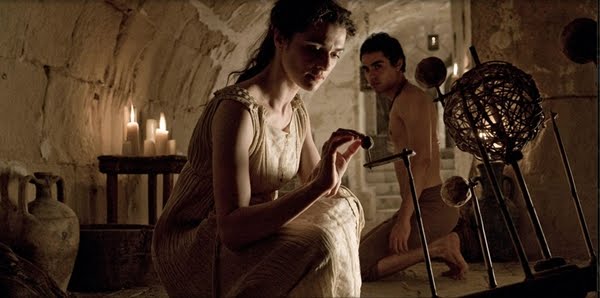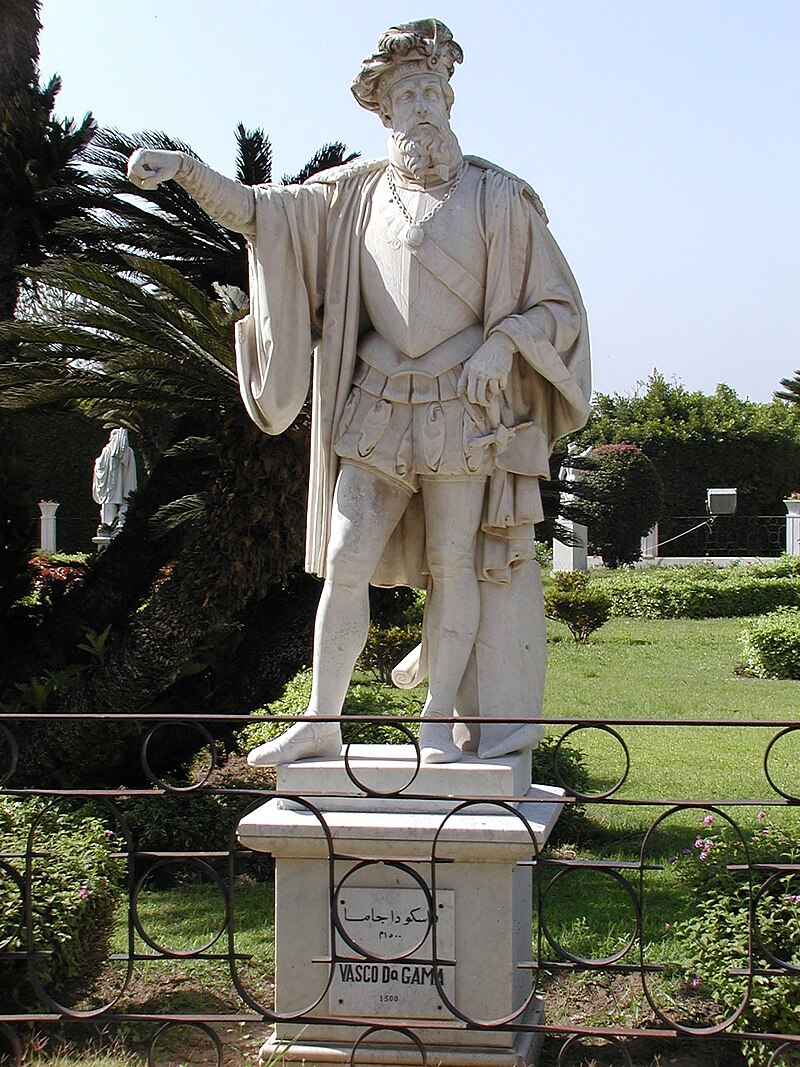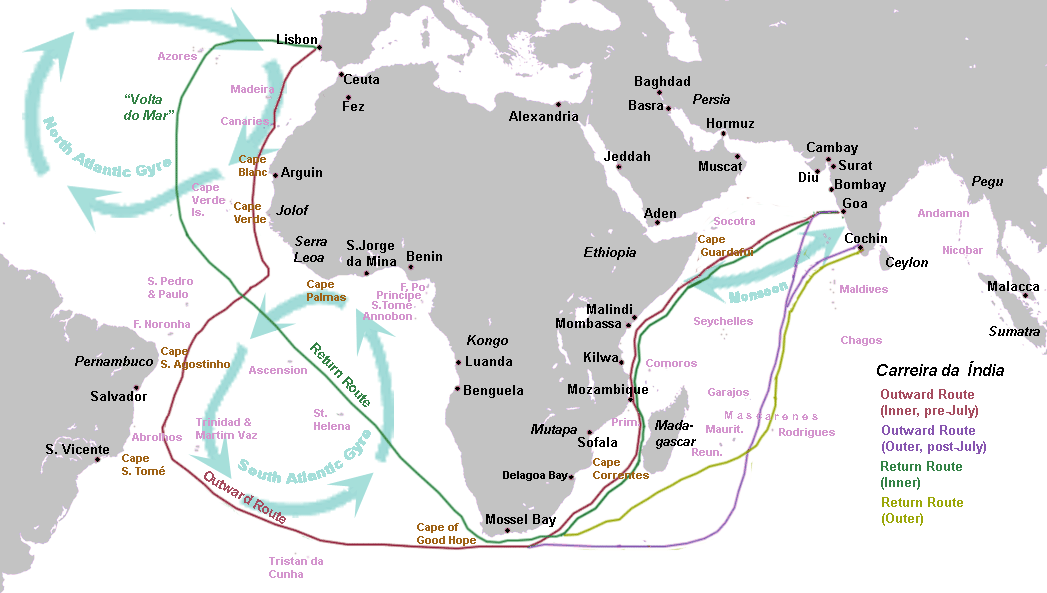TENNESSEE

https://en.wikipedia.org/wiki/Tennessee#/media/File:Clifftops4-7-07.jpg
Nashville

Parthenon in Nashville https://es.wikipedia.org/wiki/Nashville#/media/File:Parthenon.at.Nashville.Tenenssee.01.jpg



Temple of Athena (Minerva for Romans)

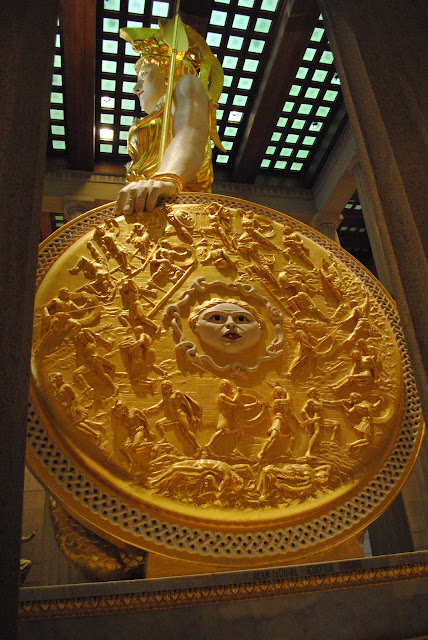


Strangford shield, Athena, Parthenon (Roman copy): representation of Amazon´s assalt of Athenas
«(...) So much was added by her valour and conduct to the fame and glory of the Amazons, that the king, for whom Hercules was bound to perform twelve labours, ordered him, as if it were a thing impossible, to bring him the arms of the queen of the Amazons. Hercules. accordingly, having proceeded thither with nine ships of war, the principal young men of Greece accompanying him, attacked the Amazons unawares. Two sisters at this time held the government, Antiope and Orithya; but Orithya was engaged in a war abroad. When Hercules, therefore, landed on the coast of the Amazons, there was but a small number of them there with their queen Antiope, free from all apprehension of hostilities. Hence it happened that a few only, roused by the sudden alarm, took up arms, and these afforded an easy conquest to the enemy. Many were slain, and many taken prisoners; among the latter were two sisters of Antiope, Menalippe being taken by Hercules, and Hippolyte by Theseus. Theseus, having received his prisoner as his share of the spoil, took her to wife, and had by her his son Hippolytus. Hercules, after his victory, restored his captive Menalippe to her sister, receiving the arms of the queen as a recompence; and having thus executed what was imposed on him, he returned to the king.
But Orithya, when she found that war had been made upon her sister, and that the assailant was a chief of the Athenians, exhorted her followers to revenge the affront, saying that the “coast of the Pontus, and Asia, had been conquered in vain, if they were still exposed, not merely to the wars, but to the marauding invasions, of the Greeks.” She then solicited aid from Sagillus, king of Scythia; representing to him “their Scythian descent, the loss of their husbands, their obligation to take arms, and their reasons for making war;” adding, “that they had proved by their valour, that the Scythians must be thought to have women not less spirited than their men.” Sagillus, alive to the glory of his nation, sent his son Panasagoras, with a numerous body of cavalry, to their aid. But some disagreement having occurred before the battle, they were deserted by their auxiliaries, and worsted in the conflict by the Athenians. They had, however, the camp of their allies as a place of refuge, under whose protection they returned to their kingdom unmolested by other nations. (...)» Marcus Junianus Justinus «Epitome of the Philippic History of Pompeius Trogus» http://www.forumromanum.org/literature/justin/english/trans2.html#4
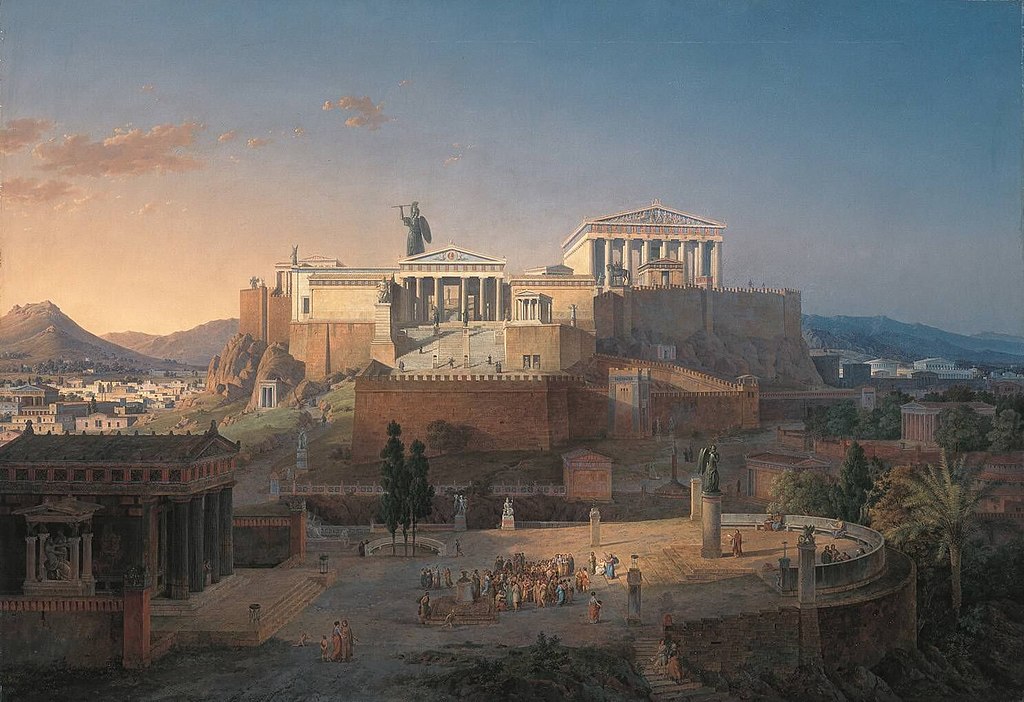
Acropolis and Areus Pagus in Athens by Leo von Klenze, 1846 https://en.wikipedia.org/wiki/Parthenon#/media/File:Akropolis_by_Leo_von_Klenze.jpg

Vincenzo Coronelli: Minerva´s Temple https://en.wikipedia.org/wiki/Parthenon#/media/File:Parthenon,_o_Tempio_di_Minerva_a_Atene_-_Coronelli_Vincenzo_-_1688.jpg
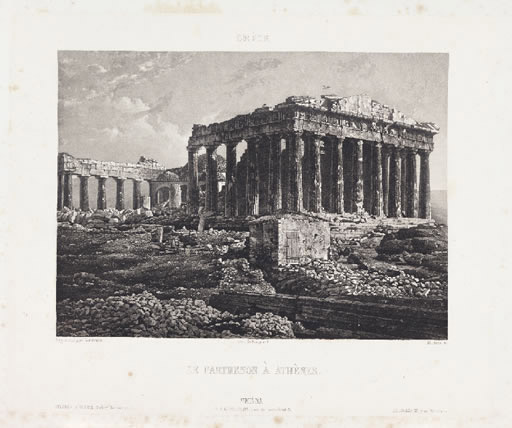
Parthenon 1839 https://en.wikipedia.org/wiki/Parthenon#/media/File:Parthenon_1839.jpg

Parthenon 1978 https://en.wikipedia.org/wiki/Parthenon#/media/File:The_Parthenon_in_Athens.jpg

https://en.wikipedia.org/wiki/Tennessee#/media/File:Clifftops4-7-07.jpg
Nashville

Parthenon in Nashville https://es.wikipedia.org/wiki/Nashville#/media/File:Parthenon.at.Nashville.Tenenssee.01.jpg

Temple of Athena (Minerva for Romans)


Strangford shield, Athena, Parthenon (Roman copy): representation of Amazon´s assalt of Athenas
«(...) So much was added by her valour and conduct to the fame and glory of the Amazons, that the king, for whom Hercules was bound to perform twelve labours, ordered him, as if it were a thing impossible, to bring him the arms of the queen of the Amazons. Hercules. accordingly, having proceeded thither with nine ships of war, the principal young men of Greece accompanying him, attacked the Amazons unawares. Two sisters at this time held the government, Antiope and Orithya; but Orithya was engaged in a war abroad. When Hercules, therefore, landed on the coast of the Amazons, there was but a small number of them there with their queen Antiope, free from all apprehension of hostilities. Hence it happened that a few only, roused by the sudden alarm, took up arms, and these afforded an easy conquest to the enemy. Many were slain, and many taken prisoners; among the latter were two sisters of Antiope, Menalippe being taken by Hercules, and Hippolyte by Theseus. Theseus, having received his prisoner as his share of the spoil, took her to wife, and had by her his son Hippolytus. Hercules, after his victory, restored his captive Menalippe to her sister, receiving the arms of the queen as a recompence; and having thus executed what was imposed on him, he returned to the king.
But Orithya, when she found that war had been made upon her sister, and that the assailant was a chief of the Athenians, exhorted her followers to revenge the affront, saying that the “coast of the Pontus, and Asia, had been conquered in vain, if they were still exposed, not merely to the wars, but to the marauding invasions, of the Greeks.” She then solicited aid from Sagillus, king of Scythia; representing to him “their Scythian descent, the loss of their husbands, their obligation to take arms, and their reasons for making war;” adding, “that they had proved by their valour, that the Scythians must be thought to have women not less spirited than their men.” Sagillus, alive to the glory of his nation, sent his son Panasagoras, with a numerous body of cavalry, to their aid. But some disagreement having occurred before the battle, they were deserted by their auxiliaries, and worsted in the conflict by the Athenians. They had, however, the camp of their allies as a place of refuge, under whose protection they returned to their kingdom unmolested by other nations. (...)» Marcus Junianus Justinus «Epitome of the Philippic History of Pompeius Trogus» http://www.forumromanum.org/literature/justin/english/trans2.html#4

Acropolis and Areus Pagus in Athens by Leo von Klenze, 1846 https://en.wikipedia.org/wiki/Parthenon#/media/File:Akropolis_by_Leo_von_Klenze.jpg

Vincenzo Coronelli: Minerva´s Temple https://en.wikipedia.org/wiki/Parthenon#/media/File:Parthenon,_o_Tempio_di_Minerva_a_Atene_-_Coronelli_Vincenzo_-_1688.jpg

Parthenon 1839 https://en.wikipedia.org/wiki/Parthenon#/media/File:Parthenon_1839.jpg

Parthenon 1978 https://en.wikipedia.org/wiki/Parthenon#/media/File:The_Parthenon_in_Athens.jpg








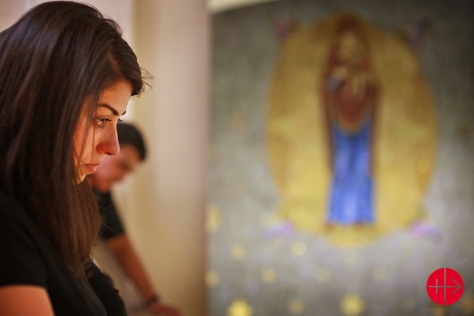
 NILUS river determine Egypt, the green and life betwwen the sands of desert ... https://la.wikipedia.org/wiki/Nilus (photo by NASA)
NILUS river determine Egypt, the green and life betwwen the sands of desert ... https://la.wikipedia.org/wiki/Nilus (photo by NASA)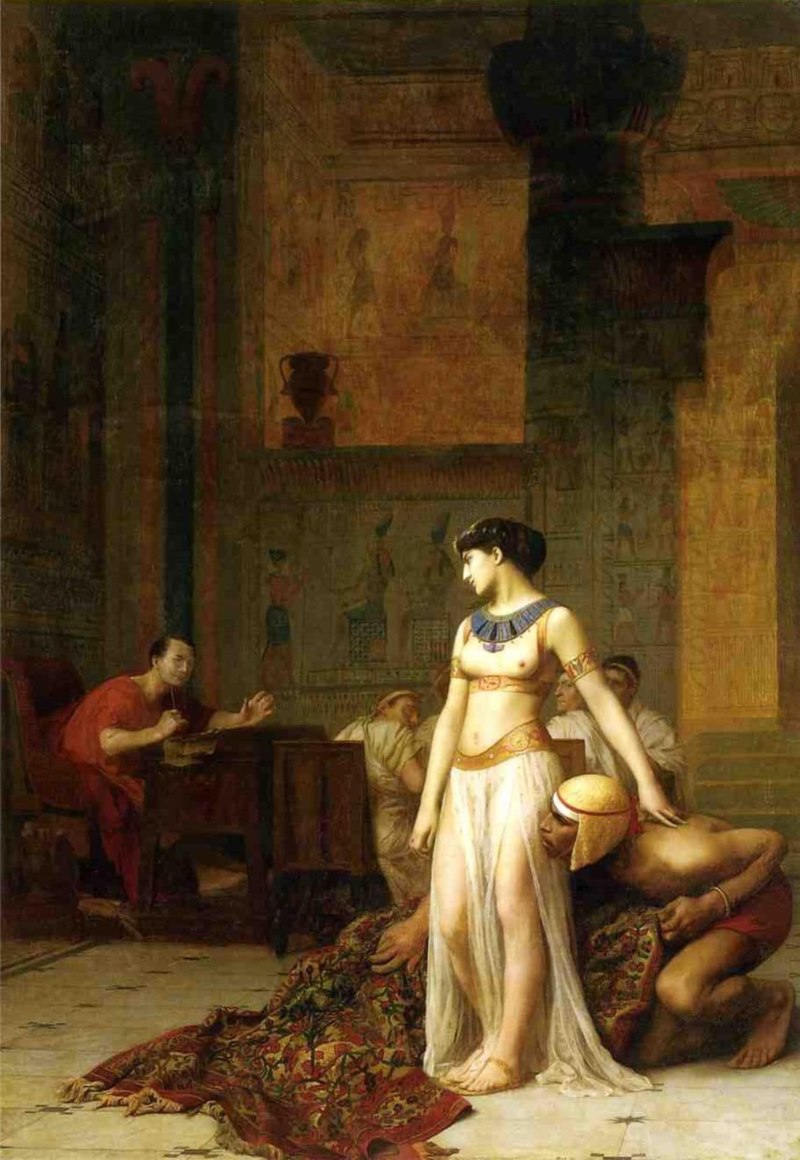
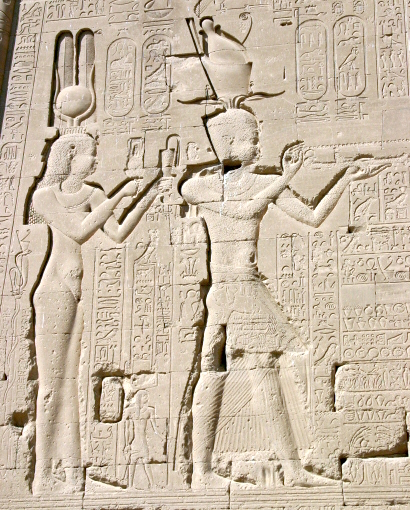
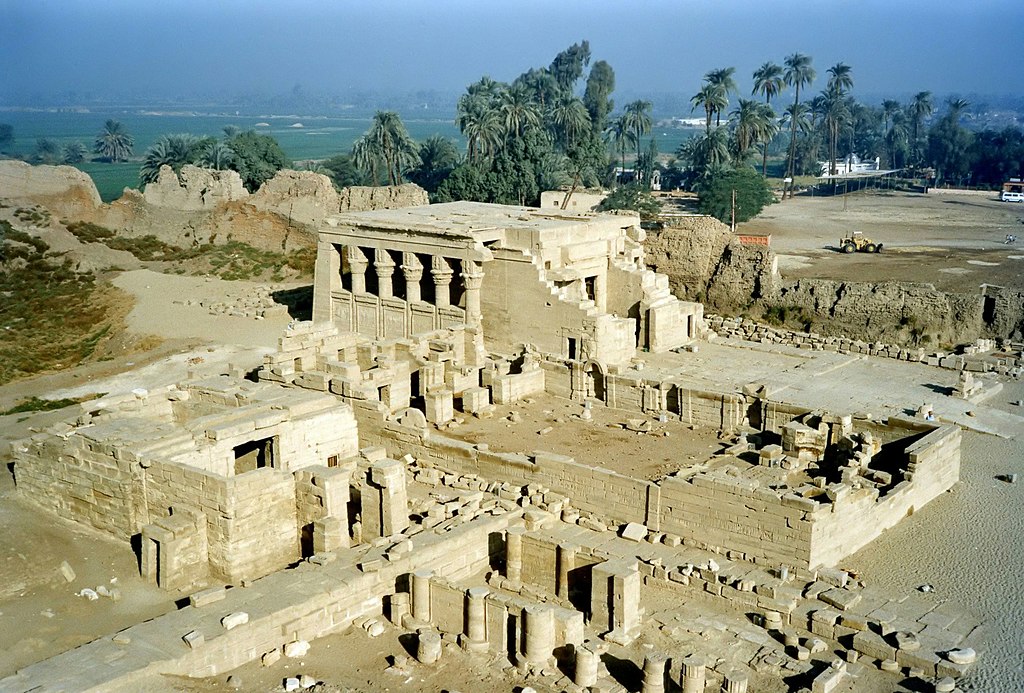


 Coat of Arms of Alexandria founded by Alexander of Macedonia
Coat of Arms of Alexandria founded by Alexander of Macedonia


